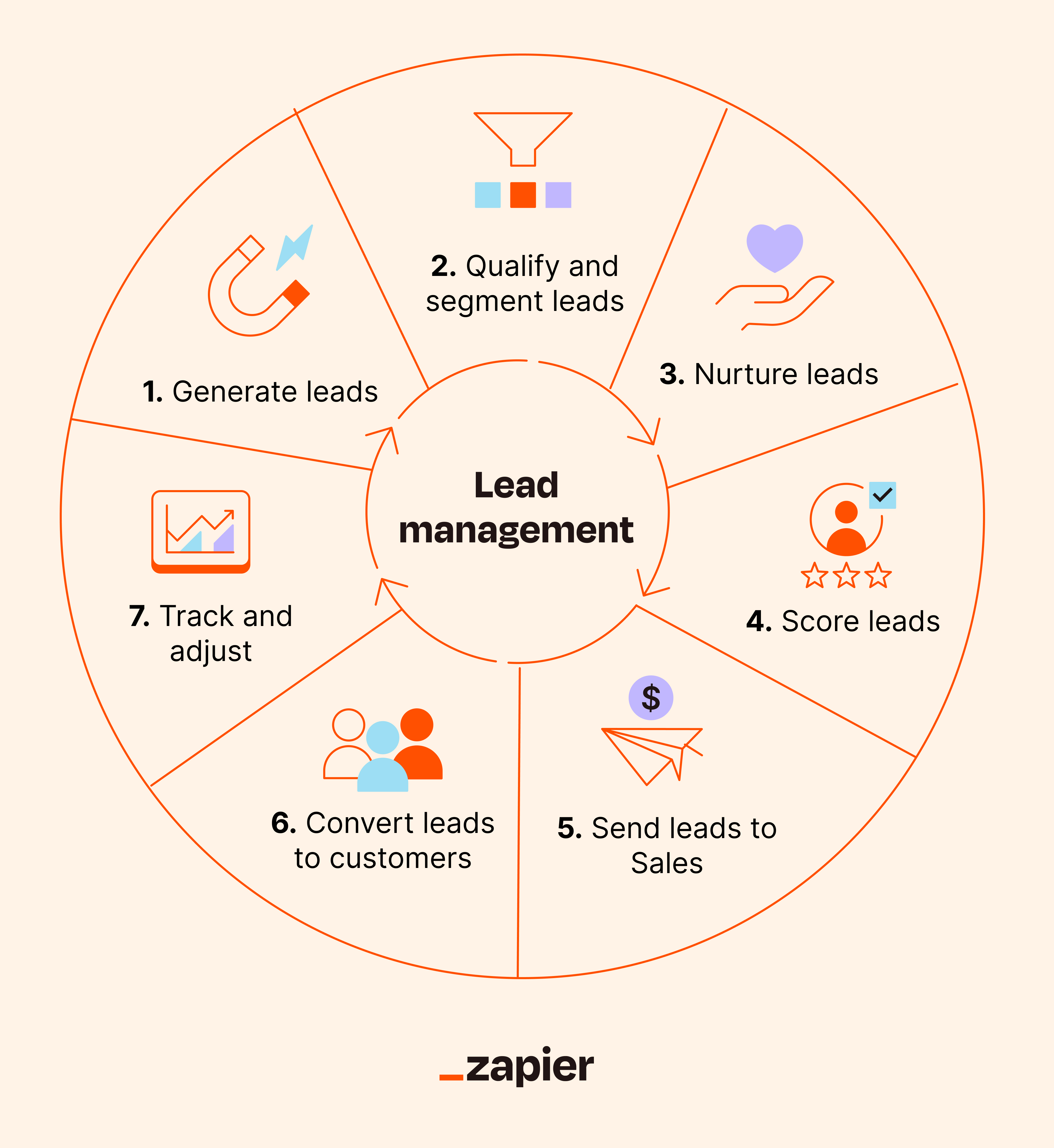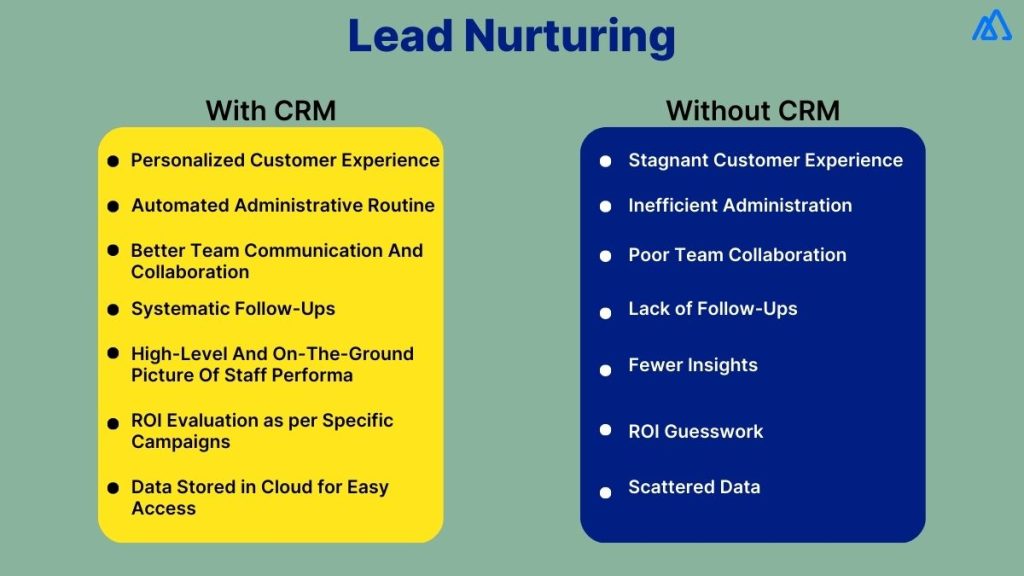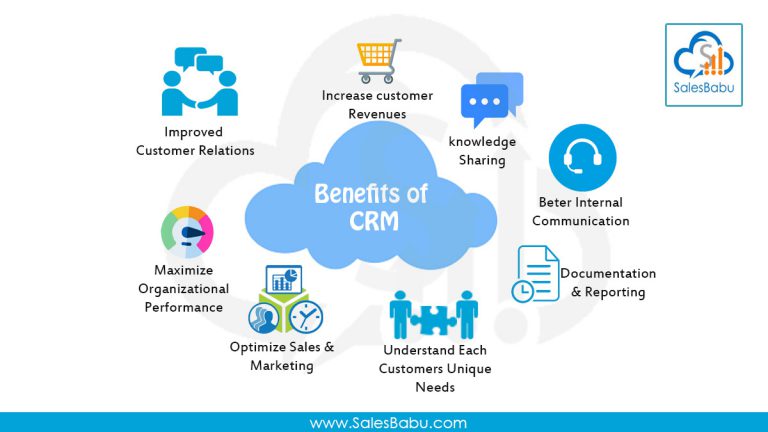In today’s competitive business landscape, generating high-quality leads is crucial for driving growth and revenue. Customer Relationship Management (CRM) systems have emerged as a vital tool in this pursuit, enabling businesses to streamline their sales processes and maximize their lead generation efforts.
By leveraging the capabilities of CRMs, organizations can better manage their interactions with potential customers, track leads, and analyze sales data to inform their marketing strategies.
Effective CRM implementation can significantly enhance a company’s ability to identify, engage, and convert leads, ultimately driving business success. A well-utilized CRM is key.
Streamlining Lead Generation with CRM Solutions
Customer Relationship Management (CRM) systems have evolved to become indispensable tools for businesses aiming to enhance their lead generation efforts. By leveraging CRM solutions, companies can streamline their sales processes, improve customer interactions, and ultimately drive revenue growth.
At its core, a CRM system is designed to manage and analyze customer interactions and data throughout the customer lifecycle. This capability is crucial for lead generation, as it enables businesses to identify, track, and engage with potential customers more effectively.
Centralizing Lead Data
One of the primary ways CRMs aid in lead generation is by providing a centralized platform for storing and managing lead data. This centralization ensures that all relevant information about a lead is accessible in one place, making it easier for sales teams to track interactions, identify patterns, and tailor their approaches accordingly.
By having a unified view of lead data, businesses can avoid the pitfalls of fragmented information and ensure that their sales strategies are informed by a comprehensive understanding of their leads.
Automating Lead Qualification
CRMs also facilitate lead generation through the automation of lead qualification processes. By setting up predefined criteria within the CRM, businesses can automatically score and qualify leads based on their behavior, demographics, and other relevant factors.
This automated lead scoring enables sales teams to focus on the most promising leads, thereby optimizing their time and resources. Moreover, automation reduces the risk of human error in the qualification process, ensuring that leads are evaluated consistently and fairly.
Enhancing Lead Engagement
Furthermore, CRMs play a critical role in enhancing lead engagement through personalized marketing and sales efforts. By analyzing the data stored within the CRM, businesses can gain insights into lead preferences and behaviors, allowing them to craft targeted campaigns that resonate with their audience.
This personalized engagement not only improves the likelihood of converting leads into customers but also fosters a more meaningful connection between the business and its prospects.
| CRM Feature | Benefit for Lead Generation |
|---|---|
| Centralized Data Management | Provides a unified view of lead data, enhancing tracking and analysis capabilities. |
| Automated Lead Scoring | Streamlines the qualification process, ensuring that sales teams focus on high-potential leads. |
| Personalized Engagement Tools | Facilitates targeted marketing and sales efforts, improving lead conversion rates. |
How does CRM generate leads?

CRM generates leads through various methods, including data analysis, marketing automation, and sales team collaboration. By leveraging customer data and behavior, CRM systems help businesses identify potential leads and nurture them through the sales funnel.
The process begins with data collection, where CRM systems gather information on customer interactions, such as website visits, email opens, and social media engagement. This data is then analyzed to identify patterns and predict customer behavior, allowing businesses to tailor their marketing efforts to target high-potential leads.
Lead Generation through Data Analysis
Data analysis is a critical component of CRM lead generation. By examining customer data, businesses can identify trends and patterns that indicate potential leads. This analysis can be used to create targeted marketing campaigns that resonate with the target audience.
- Analyzing customer demographics and behavior to identify potential leads
- Using data to create targeted marketing campaigns that drive engagement
- Tracking the effectiveness of marketing efforts to refine lead generation strategies
Marketing Automation and Lead Nurturing
Marketing automation is another key aspect of CRM lead generation. By automating routine marketing tasks, businesses can free up resources to focus on high-value activities, such as lead nurturing. CRM systems enable businesses to create personalized marketing campaigns that engage potential leads and guide them through the sales funnel.
- Automating email campaigns to nurture leads and build relationships
- Using lead scoring to identify high-potential leads and prioritize sales efforts
- Creating personalized content that resonates with the target audience
Collaboration between Sales and Marketing Teams
Effective collaboration between sales and marketing teams is essential for successful CRM lead generation. By aligning their efforts, businesses can ensure that leads are properly nurtured and converted into customers. CRM systems facilitate this collaboration by providing a shared platform for sales and marketing teams to track leads and coordinate their efforts.
- Aligning sales and marketing teams around a shared understanding of lead generation goals
- Using CRM data to inform sales and marketing strategies
- Tracking the effectiveness of sales and marketing efforts to identify areas for improvement
What role does CRM play in lead nurturing?

CRM plays a significant role in lead nurturing as it enables businesses to manage and analyze customer interactions and data throughout the customer lifecycle. By using a CRM system, businesses can track and record every interaction with potential customers, from initial contact to conversion.
This allows them to understand the needs and preferences of their leads and tailor their marketing efforts accordingly.
Personalization through Data Analysis
A CRM system allows businesses to collect and analyze data about their leads, including their behavior, preferences, and demographics. This information can be used to create targeted marketing campaigns that resonate with potential customers.
- Analyzing customer data to identify patterns and trends
- Creating buyer personas to guide marketing efforts
- Using data to inform content creation and distribution
Streamlining Lead Nurturing Processes
CRM systems can automate many lead nurturing tasks, such as email campaigns and follow-up activities. This enables businesses to respond promptly to lead inquiries and maintain consistent communication.
- Automating routine tasks to free up staff time
- Setting up workflows to ensure timely follow-up
- Using CRM tools to track lead interactions and adjust nurturing strategies
Enhancing Collaboration and Alignment
A CRM system provides a centralized platform for sales, marketing, and customer service teams to collaborate and share information. This ensures that all teams are aligned and working towards the same goals.
- Providing a single source of truth for customer data
- Facilitating communication between teams through CRM tools
- Enabling teams to track progress and adjust strategies accordingly
What is the purpose of lead management in CRM?
The purpose of lead management in CRM is to streamline and optimize the process of capturing, tracking, and converting leads into customers.
Lead management enables businesses to effectively manage their sales pipeline by organizing and prioritizing leads based on their level of interest and potential for conversion. This allows sales teams to focus on the most promising leads and tailor their approach to maximize the chances of a successful sale.
Benefits of Lead Management
Lead management offers several benefits to businesses, including improved sales efficiency, enhanced customer insights, and better decision-making. By implementing a lead management system, businesses can automate routine tasks, such as lead assignment and follow-up emails, freeing up sales teams to focus on high-value activities.
- Improved sales productivity through automation and prioritization
- Enhanced customer insights through data analysis and tracking
- Better decision-making through real-time visibility into the sales pipeline
Key Features of Lead Management in CRM
Effective lead management in CRM involves several key features, including lead capture, lead scoring, and lead nurturing. Lead capture involves collecting and storing lead data from various sources, such as website forms, social media, and advertising campaigns. Lead scoring enables businesses to assign a score to each lead based on their level of interest and potential for conversion.
- Lead capture and storage in a centralized database
- Lead scoring and prioritization based on predefined criteria
- Lead nurturing through automated email campaigns and follow-up activities
Best Practices for Implementing Lead Management
To get the most out of lead management in CRM, businesses should follow best practices, such as defining clear lead qualification criteria, establishing a lead scoring model, and regularly reviewing and refining their lead management processes. By doing so, businesses can ensure that their lead management system is aligned with their sales strategy and is delivering the desired results.
- Define clear lead qualification criteria to ensure accurate lead scoring
- Establish a lead scoring model that reflects the business’s sales priorities
- Regularly review and refine lead management processes to optimize performance
Why would a CRM system be beneficial to the supply chain process?

A CRM system can be highly beneficial to the supply chain process as it enables organizations to manage their interactions with customers more effectively. By integrating customer data and interactions into the supply chain, companies can gain a more comprehensive understanding of customer needs and preferences.
Improved Customer Insights
A CRM system provides a centralized platform for managing customer data, enabling supply chain managers to access valuable insights into customer behavior and preferences. This information can be used to inform supply chain decisions, such as production planning and inventory management.
Some of the key benefits of improved customer insights include:
- Enhanced demand forecasting accuracy
- Better alignment of supply chain operations with customer needs
- More effective management of customer expectations
Streamlined Communication and Collaboration
A CRM system facilitates communication and collaboration between different departments and stakeholders within the supply chain. By providing a shared platform for managing customer interactions, CRM systems can help to break down silos and improve coordination between sales, marketing, and supply chain teams.
Some of the key benefits of streamlined communication and collaboration include:
- Improved responsiveness to customer inquiries and issues
- More effective management of customer complaints and concerns
- Enhanced visibility into customer interactions across the supply chain
Enhanced Supply Chain Visibility and Responsiveness
A CRM system can also enhance supply chain visibility and responsiveness by providing real-time updates on customer interactions and supply chain operations. This enables supply chain managers to respond quickly to changes in customer demand or supply chain disruptions.
Some of the key benefits of enhanced supply chain visibility and responsiveness include:
- Improved ability to respond to changes in customer demand
- More effective management of supply chain disruptions
- Enhanced ability to proactively manage customer expectations
Frequently Asked Questions
What is the role of CRM in lead generation?
A CRM (Customer Relationship Management) system plays a significant role in lead generation by organizing and analyzing customer interactions and data. It helps businesses track leads, manage contacts, and analyze sales pipeline to identify potential customers. By streamlining these processes, a CRM enables companies to respond promptly to new leads and improve conversion rates.
How does CRM help in qualifying leads?
A CRM helps qualify leads by assigning scores based on predefined criteria such as behavior, demographics, and engagement level. This lead scoring enables sales teams to prioritize high-quality leads and focus on the most promising opportunities. By automating lead qualification, businesses can reduce manual effort and ensure that sales teams are targeting the most convertible leads.
Can CRM integration improve lead generation?
Yes, integrating a CRM with other marketing tools and platforms can significantly improve lead generation. Integration enables seamless data exchange, automates workflows, and provides a unified view of customer interactions. By connecting CRM to marketing automation, social media, and other tools, businesses can gain a more comprehensive understanding of their leads and respond effectively to new opportunities.
How does CRM analytics support lead generation strategies?
CRM analytics provides valuable insights into customer behavior, sales performance, and lead generation effectiveness. By analyzing CRM data, businesses can identify trends, patterns, and areas for improvement in their lead generation strategies. This data-driven approach enables companies to refine their targeting, optimize marketing campaigns, and allocate resources more efficiently to maximize lead generation ROI.


